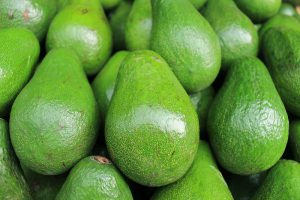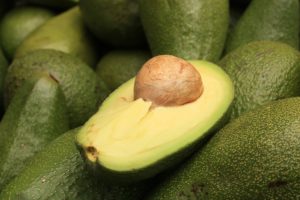Avocados, historically known as alligator pears, have become very popular over that last decade. They can be spread over toast, mashed into dips, blended into milkshakes, and even pressed for cooking oil. These deliciously creamy fruits (yes, fruits!) are highly desired around the globe. Avocado trees (Persea americana) are thought to be indigenous to Mesoamerica. As a species, avocados are large, evergreen trees in the Laurel family. This family of plants also includes cinnamon and bay leaves.
Where do avocados grow?

Avocado trees grow best in warm, frost-free conditions. They can grow in subtropical, tropical, and Mediterranean climates depending on the variety being grown. To be most productive, they should be planted in full, bright sunlight (8+ hours). Additionally, they should be planted in fertile, well-drained soils. Avocado trees are very sensitive to overly wet or flooded conditions. In these situations, the trees tend to perish quickly from root rot. Lastly, as mentioned above, avocado trees should be planted in the warmest spot in your landscape. You can find cold tolerant varieties, but prolonged freezing temperatures will kill them.
Multiple domestications
Recent evidence has suggested that avocados were domesticated independently at least three times. The result of these multiple domestication events was the development of three avocado “races.” Two of the races, the Mexican and Guatemalan, were developed in the highlands of their respective countries. The remaining variety, the West Indian, was domesticated in the lowland regions of Mexico and the Caribbean. The avocado races can be distinguished from each other by many characteristics. This includes blooming/maturity season, fruit size/weight/color, skin texture, and oil content to name a few. To further complicate things, there are many hybrids between these distinct races. One prominent example of a hybrid is the ‘Hass’ variety.
Things to watch for
In general, avocado trees tend to be fairly disease and pest free. However, even with good care, pests and diseases may show up. Some common pests include avocado lacebugs, scale insects, and mites. These pests can be managed if they are causing significant damage or are attacking young trees. On the other hand, diseases are best avoided through good sanitation and cultivation. Some diseases you may encounter are scab, powdery mildew, anthracnose, root rot, and laurel wilt. Selecting scab-resistant varieties, planting in full sun, scouting regularly, and avoiding wet or low areas will go a long way in preventing problems.
Deciding which avocado is for you

With dozens of varieties to choose from, finding the right avocado for your garden can be a little challenging. Fortunately, there are some things to look for while researching that will help you make the best decision. While researching varieties, you should consider the following criteria: cold tolerance, scab resistance, productivity, fruit quality, and flower type (A or B, ideally one tree of each). With that said, some recommended avocado varieties for our area are ‘Choquette,’ ‘Brogdon,’ ‘Monroe,’ and ‘Oro Negro.’
Need more information?
This information was compiled by Mack Lessig, Community Gardens Program Coordinator for Manatee County Department of Parks and Natural Resources, Ag and Extension Services Division in partnership with the University of Florida/IFAS. 941-722-4524 Ext 1821 or MLessig@ufl.edu
We have a plant diagnostic clinic open to the public on Monday, Tuesday, Thursday, and Friday from 9:00 am to 4:00 pm. Bring us your landscaping and gardening issues.
If you want to grow avocados commercially, reach out to Lisa Hickey. She is the Sustainable Food Systems Extension Agent who works with the commercial fruit and vegetable producers. Lisa.Hickey@ufl.edu Same office number.
 1
1
